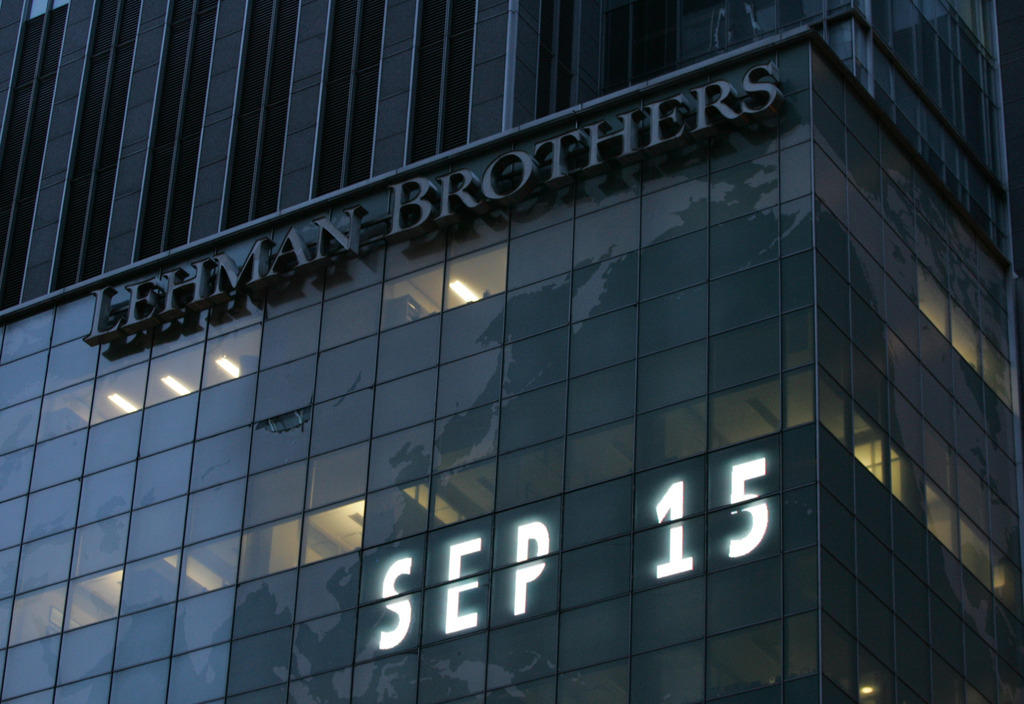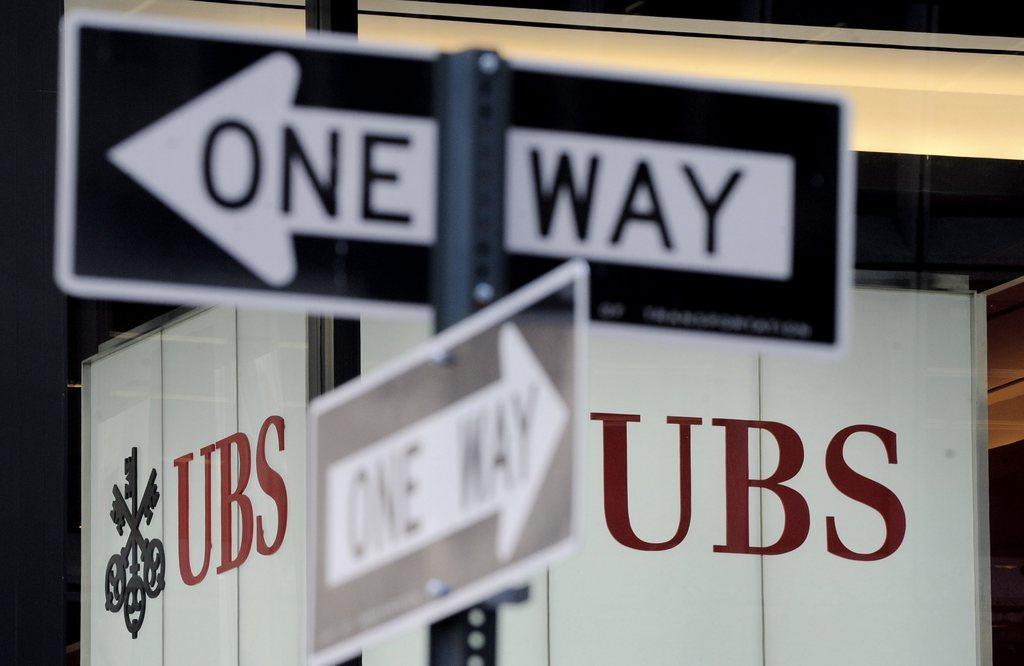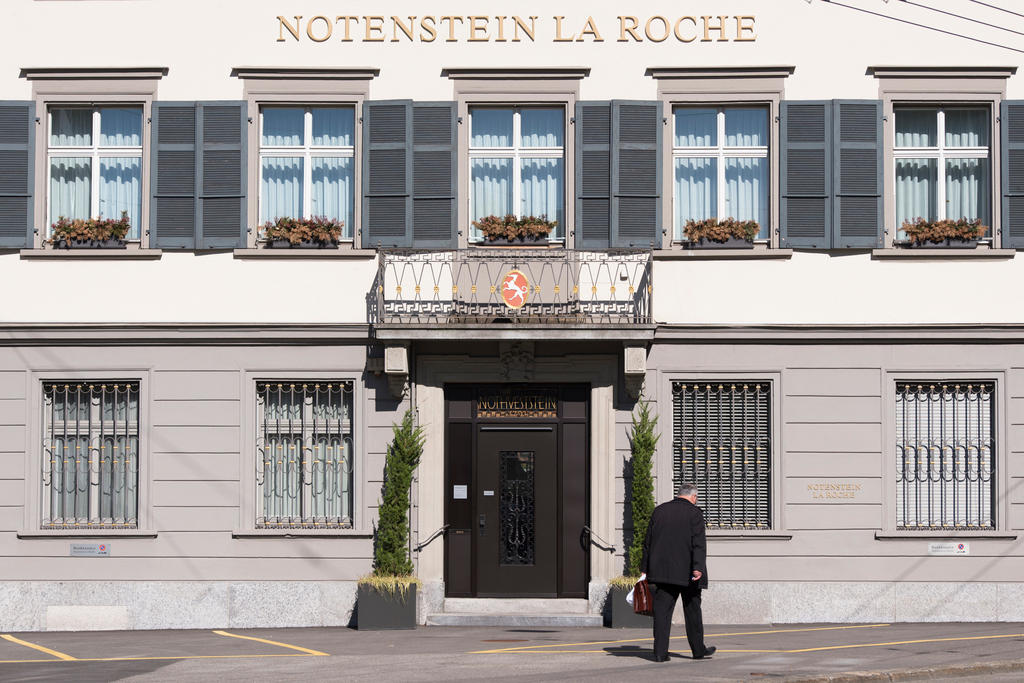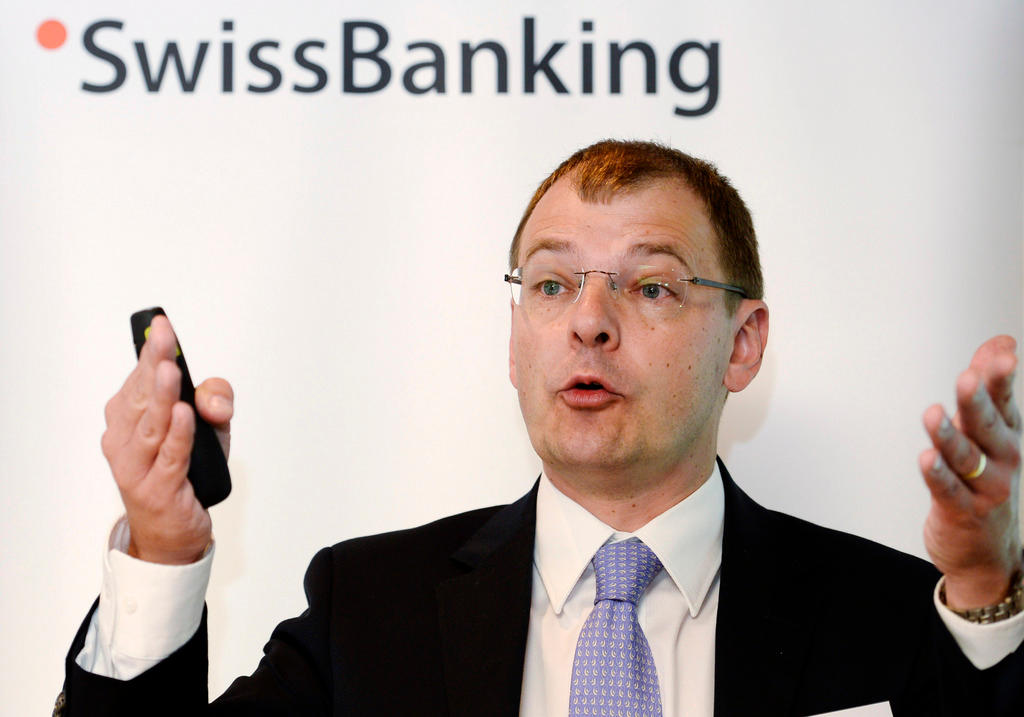Lehman Brothers: the bankruptcy of a bank and that of a system
On September 15 2008, Lehman Brothers Holdings Inc. filed for Chapter 11 bankruptcy. It was the start of a lengthy and complex process encompassing about $1.2 trillion worth of creditor claims.
When flight LB2008 crashed, after suddenly disappearing from the radar assigned to so-called systemic banks, it was apparently a case of thunder on a sunny day, an unpredictable catastrophe.
However, some elements of the black box, despite their complexity, allow us to better comprehend the reasons for this disaster and to highlight the untruths that had allowed this bank’s catastrophic situation to be camouflaged well before its disappearance.

More
The financial crisis of 2008 and the Swiss ‘miracle’
In this respect, Lehman Brothers’ last annual report offers an abundance of indications. It is complacent with frequent self-praise. Terms such as “record performance”, “terrific results”, “talent management efforts”, “excellence” and “focus on risk management” follow one after another. In 2007, the bank boasted about being “number one” in algorithm trading and having received 42 “best in class” awards for excellence in the 2007 Global Custodian Prime Brokerage Survey.
As icing on the cake, Lehman Brothers, on the verge of bankruptcy, was supposed to address questions about climate change and associated itself with sustainability and responsibility. Mitigating the environmental impact of its operations was also stated as one of its objectives. These are jokes made in poor taste! The bank even presented itself as philanthropic! In retrospect, the annual report appears as what it really is: a work of propaganda!
Conflict of interest
The major credit rating agencies, Moody’s, Standard & Poor’s and Fitch Ratings, were not to be left out, seeing that only a few days before Lehman Brothers declared bankruptcy, they were still assigning it positive ratings equal to at least A. During the years preceding the collapse there seemed to be complete voluntary blindness. Incidentally, Richard Fuld, the former CEO of Lehman Brothers, received close to half a billion dollars between 2000 and 2007 despite his responsibility for the strategy that would lead the bank to bankruptcy.
At the time, analysts clearly failed to read the annual report with the necessary critical eye. Evidently, they had not taken the time to consider the conflicts of interest between rating agencies and their clients, i.e. the big banks. Faced with a completely disproportionate off-balance sheet full of dubious deals as well as complex, derivative products, they should have sounded the alarm. At $35 trillion, the nominal value of derivatives corresponded to approximately 50 times the total balance sheet and 1,500 times shareholder equity!

The fact that shareholder equity in proportion to the balance sheet had been ridiculously low, in this case 3.25%, did not seem pertinent to them. And the fact that, in proportion to the bank’s total liabilities – including those listed on the balance sheet as well as those on the gigantic off-balance sheet – equity was microscopic, was not deemed worthy of interest either.
Eye-watering debt remains
To summarise, financial analysts actually considered the enormous debt and the huge off-balance sheet to be irrelevant, despite the fact that notional amounts of derivative contracts are indeed one of the measurements used to gauge the importance of derivatives markets (see for example the BIS Quarterly Review, September 2015, p. 8). They did not lift the veil of lies.
And what about today? Equity of large banks relative to their balance sheet is slightly higher but remains far too low. Despite laudatory annual reports and reassuring statements made by financial pundits as well as thousands of pages of regulations, debts are disproportionate, the nominal value of traded derivatives remain colossal and CEO compensations are still completely outrageous. The party goes on for the financial oligarchy!
In 2017, HSBC’s nominal value of traded derivatives corresponded to 10.7 times total assets, 143 times equity, 11 times British GDP and 33% of world GDP. In the case of Goldman Sachs, with around $48.9 trillion, this value represented 53 times total assets, 568 times equity and 2.5 times US GDP. For Citigroup, with $45.7 trillion, it represented almost 25 times total assets, 227.5 times equity and 2.3 times US GDP.
Regarding Deutsch Bank, in 2017 nominal value of derivatives represented close to €48.265 trillion – i.e. 33 times its total balance sheet, 708 times its equity that totalled €68.1 billion, 15 times the German GDP or approximately two thirds of global GDP!
Recipe for disaster
Moreover, between 2008 and 2018, the shadow banking sector strongly developed. This is illustrated by the emergence of BlackRock, de facto too big to fail, with more than $6 trillion in assets under management. This sector is particularly opaque and disturbingly powerful.
Beyond Lehman Brothers’ bankruptcy, it is in fact the bankruptcy of a system of casino finance in which debts, bets, and cynicism prevail over savings, investment and confidence. This process plunges society into a permanent crisis. Big banks, by virtue of their too-big-to-fail specifity, enjoy all sorts of advantages and guarantees that contrast starkly with the liberal principles they proclaim.
This situation creates a systemic risk from which the economy suffers. Closing one’s eyes and ignoring the facts is undeniably the recipe for future disasters.
swissinfo.ch publishes op-ed articles by contributors writing on a wide range of topics – Swiss issues or those that impact Switzerland. The selection of articles presents a diversity of opinions designed to enrich the debate on the issues discussed.

In compliance with the JTI standards
More: SWI swissinfo.ch certified by the Journalism Trust Initiative












You can find an overview of ongoing debates with our journalists here . Please join us!
If you want to start a conversation about a topic raised in this article or want to report factual errors, email us at english@swissinfo.ch.